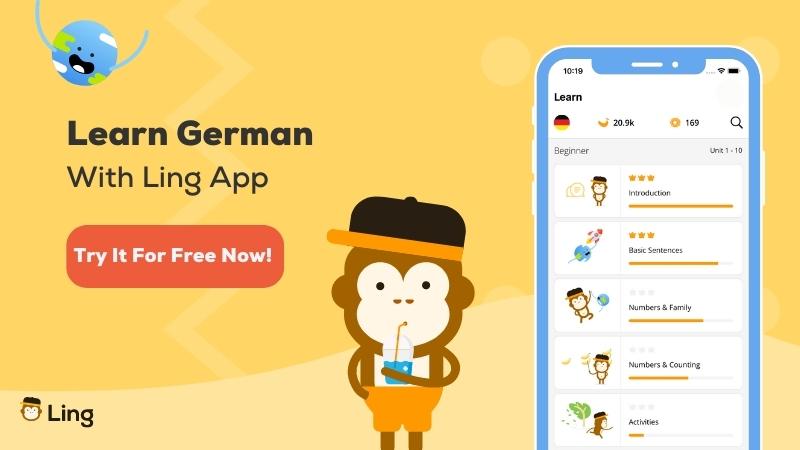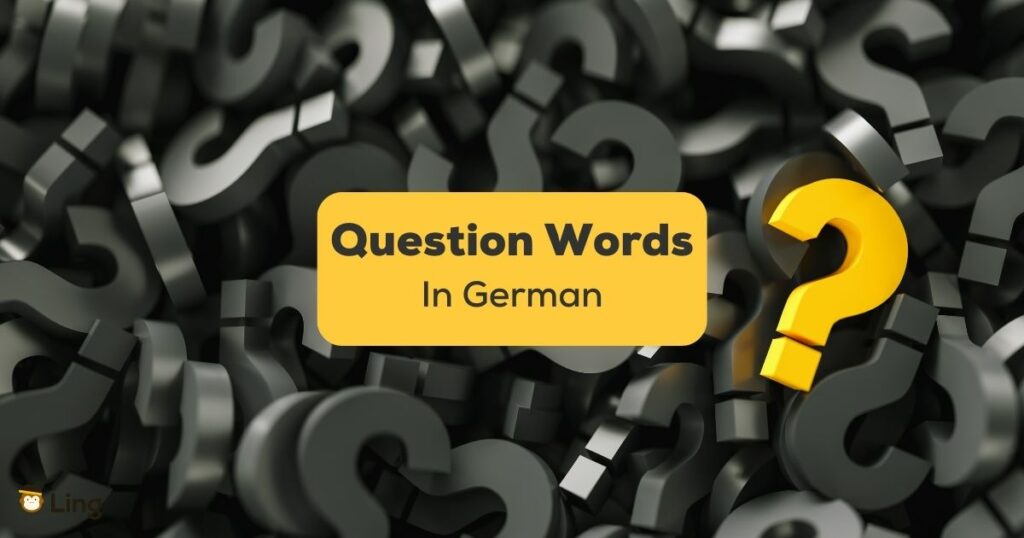Craving a pint of Bavarian beer in the lively halls of Munich? Well, to truly immerse yourself in the local culture, you’ll need to know how to ask the right Fragen or questions! You see, the question words in German are crucial to unlocking insider tips and hidden spots that can potentially make your trip an unforgettable experience. So, if you’re ready to learn how all those “wer,” “wo,” and “wie” differ from each other, you’ve got to continue reading this guide. Let’s begin!
During my recent trip to the famous quaint old town between Ammergau and Allgäu Alps, I learned that conversing using the local language made my whole travel much easier. As I explored the historic walls of Füssen, I got the chance to experience its magic and deeply appreciate its history and significance the moment I put my knowledge of constructing questions in German to use. I got to actually speak with the guides and the locals and ask them for more information about every intricate detail of this wonderful place. And you know what, I believe that it’s also something that every traveler would like to experience.
While constructing questions in a totally new language may seem super intimidating initially, it is a necessary evil to deal with. In fact, you are bound to use that knowledge in interrogatives the moment you step out of the airport and ask around for a taxi or when you want to know where the nearest supermarket is. The thing is that no matter how you look at it, asking questions is a huge part of our lives!
So to help you out in this aspect, we’ll go over in this post everything you need to know about this particular aspect of the German language. Let’s start!

The Role Of Questions In The German Language
As in any language, questions are an essential part of communication in German. Interrogative pronouns, or Fragepronomen, play a particularly important role in everyday conversations, allowing you to ask for information, clarify meanings, and engage in conversations with others.
In German, interrogative pronouns typically start with the letter “w,” which is why they are often referred to as W-Wörter. These words can be used to form a wide variety of questions, including yes or no questions, information questions, and questions that ask for specific details or explanations.
As a German language learner, mastering the proper use and placement of interrogative pronouns is essential for building fluency and confidence in conversation. While it may seem daunting at first, with the right guidance and practice, you can quickly form and use questions effectively in conversation. And since we believe in your capacity to master this language, we made the whole concept easier in the sections below! From easy-to-follow sentence patterns to relevant example sentences, we got you covered.

How Do You Ask Questions In German?
Basically, there are two types of questions in the German language: Ja oder nein Fragen (yes or no questions) and Informationsfragen (information questions). The yes or no questions are straightforward and can be answered with either ja (yes) or nein (no). Usually, this type of question follows this sentence pattern: Verb + Subject + The rest of the sentence.
- Are you sad? = Bist du traurig?
- Are you going? = Gehst du?
- Do you speak Thai? = Sprichst du Thai?
- Do you like to eat pizza? = Isst du gern Pizza?
- Is Anna running this weekend? = Läuft Anna dieses Wochenende?
As you noticed above, it is important to conjugate the verbs for the subject correctly so that the question will make sense.
Now if you want to formulate informational questions, do note that you need to place the question words in the first position and then the conjugated verb in the second position. In that case, the sentence pattern will look like this: Question word + Verb + The rest of the sentence.
- Who is this? = Wer ist das?
- Where are you? = Wo bist du?
- Where do you go? = Wohin gehst du?
- What’s your name? = Wie heißt du?
- How old are you? = Wie alt bist du?
However, we need to change that sentence pattern a bit if we want to create a more complex sentence. In this case, we need to follow this: Question word + Object + Verb + The rest of the sentence.
- How much time do we have? = Wie viel Zeit haben wir?
- How many toys does she have? = Wie viele Spielsachen hat sie?
See how easy it is to ask questions in German? Now that you know the correct form to use and the word order, let’s now focus on the basic question words.
Question Words In German
While it’s true that you can just try to speak English all the time during your stay in Germany, putting some effort into learning the local language can make your experience extra special. Trust us! The locals will notice your effort and warm up to you much easier than ever! Now if you’re looking to expand your vocabulary with words that you can actually use, then starting with the most common question words is a wise move.
To start, here’s a table that summarizes the interrogative pronouns.
| English | German |
|---|---|
| How | Wie |
| What | Was |
| When | Wann |
| Where | Wo |
| Where from | Woher |
| Where to | Wohin |
| Which | Welche/Welcher/Welches/Welchen/Welchem |
| Who | Wer/Wen |
| Whose | Wessen |
| Why | Warum/Weswegen |
| Why | Wozu/Wieso/Weshalb |
Who
The German pronoun “wer” is used to inquire about people (a specific person, role, or characteristic in general.
- Who speaks English here? = Wer spricht hier Englisch?
- Who knows their way around here? = Wer kennt sich hier gut aus?
- Who are you? = Wer bist du?
- Who stole my wallet? = Wer hat meine Brieftasche gestohlen?
- Who do I give this to? = Wem gebe ich das?
What
The German pronoun “was” is used to ask about things, actions, or situations in general, and it is equivalent to the English word “what.”
- What is your name? = Wie ist dein Name?
- What time does the train leave? = Um wieviel Uhr fährt der Zug ab?
- What can I do for you? = Was kann ich für dich tun?
- What do you want to eat? = Was möchtest du essen?
- What is that? = Was ist das?
Where
The German pronoun “wo” is used to ask about specific places or locations in general, and it is equivalent to the English word “where.”
- Where is the nearest ATM? = Wo ist der nächste Geldautomat?
- Where is the train station? = Wo ist der Bahnhof?
- Where can I find a good restaurant? = Wo kann ich ein gutes Restaurant finden?
- Where is the bathroom? = Wo ist das Badezimmer?
- Where is the hotel located? = Wo befindet sich das Hotel?
When
The German pronoun “wann” is used to ask about specific times, dates, or durations in general, and it is equivalent to the English word “when.”
- When does the museum open? = Wann öffnet das Museum?
- When is your flight to Germany? = Wann geht dein Flug nach Deutschland?
- When does the film start? = Wann beginnt der Film?
- When did you arrive? = Wann bist du angekommen?
- When do the stores close? = Wann schließen die Geschäfte?
Why
The German pronoun “warum” is used to ask for explanations or reasons in general, and it is equivalent to the English word “why.”
- Why did you come to Germany? = Warum bist du nach Deutschland gekommen?
- Why is the museum closed? = Warum ist das Museum geschlossen?
- Why are you learning German? = Warum lernst du Deutsch?
- Why did you choose this hotel? = Warum hast du dieses Hotel gewählt?
- Why did you miss your flight? = Warum hast du deinen Flug verpasst?
How
The German pronoun “wie” is used to ask about manner, degree, or condition in general, and it is equivalent to the English word “how.”
- How are you feeling? = Wie geht es dir?
- How much does it cost? = Wie viel kostet es?
- How do you spell your name? = Wie schreibt man deinen Namen?
- How long is the flight? = Wie lange dauert der Flug?
- How do I get to the city center? = Wie komme ich zum Stadtzentrum?

Tips For Learning German Question Words
Learning a new language can be an exciting but challenging journey, especially when it comes to a language like German. Yep, it’s a bit difficult to master, but it’s not impossible! With the right tips, resources, and strategies, you can accelerate your learning and become adept at forming questions and speaking this language more confidently.
Like any other aspect of language learning, practice is key to mastering German question words. To build your skills in this area, consider using exercises and drills that focus specifically on interrogative pronouns. This could include the use of using gamified apps like Ling or basic workbooks that require you to fill in the blanks with the appropriate question word. By making time for extra practice regularly, you can build your understanding and fluency faster.
Additionally, we highly recommend immersing yourself in the target language. This could include listening to German podcasts or music, watching films or TV shows, and speaking with native speakers as often as possible. The more you expose yourself to German, the more natural and intuitive your use of question words will become.

Learn German Now With Ling
Wondering how to master the German language? Friend, it’s time to put your search to an end because I know of the best platform to help you out: Ling! Ling is a language learning platform designed to help you master German and 60+ other languages through its advanced methodology. Combining gamified features and advanced lessons, you can master how to make those basic questions and actually express yourself in the target language more confidently!
But don’t just take our word for it! Try our Ling today from Play Store or App Store and see why it’s loved by thousands of learners worldwide.








































